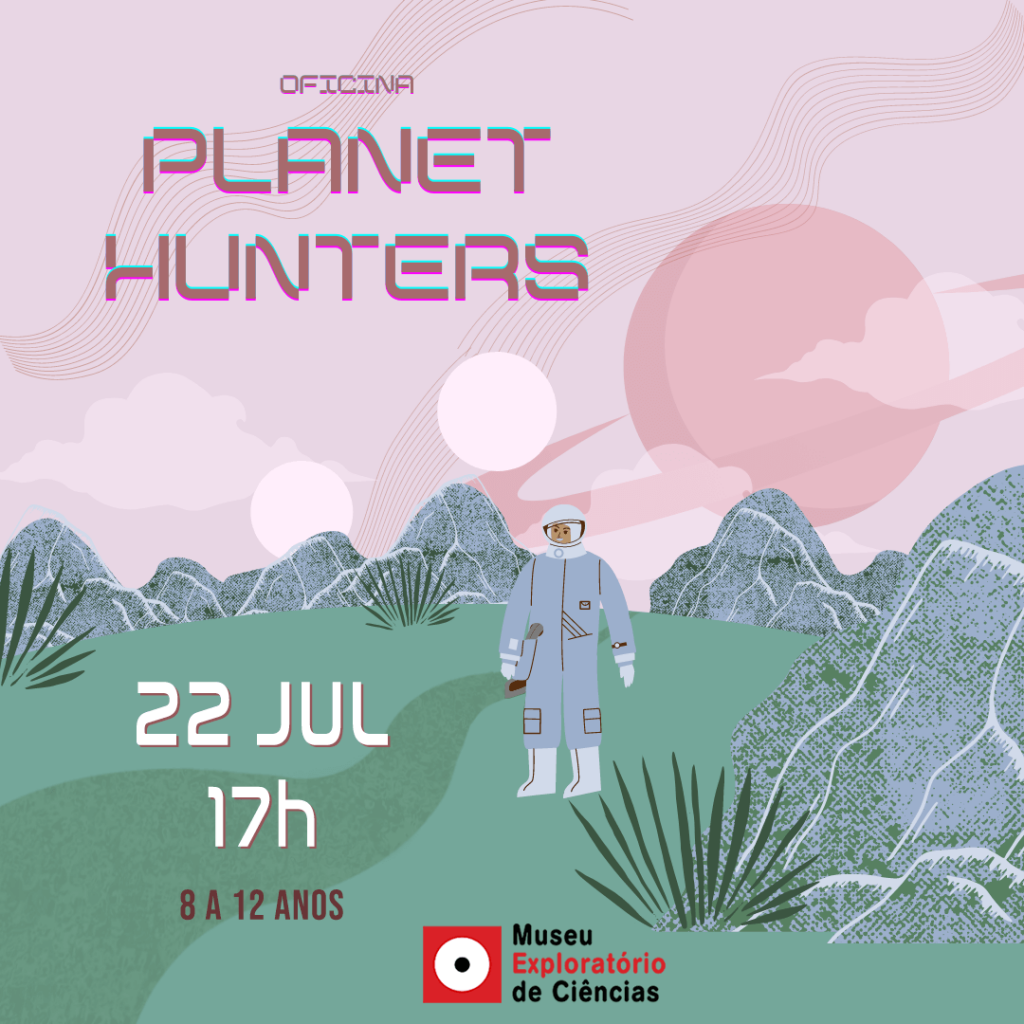Online weekly schedule for UNICAM Exploratory Science Museum Shows July 22 and 23 Live “Planet Hunters” and “Life in Composteira” Workshop, Straight. Activities are free and the workshop requires prior registration.
Check it out below:
Oficina Planet Hunters
Today: 7/22, Thursday, from 5 pm to 6:15 pm
Presentation: Carolina Idelfonço
Indication: 8 to 12 years old
Registration: Access the link
Do you know what is an exoplanet? Have you ever thought about traveling to a planet with two suns? Would you like to meet a planet with an ocean of boiling lava?
The universe is full of interesting celestial bodies. Some are scary and some have properties far beyond what we can imagine! Thousands of such stars have already been discovered in our galaxy, but there is still a lot to explore!
In this workshop, participants will learn how cosmologists analyze image data to discover planets outside our solar system.
Matter
Styrofoam trays (from the supermarket) cut into 4 circles. Diameter of each circle: 1.5cm, 2.5cm, 5.0cm, 10.0cm. The smaller circles should be made of sulfites. Watch the models: Access the link.
– A4 paperboard (02 sheets) 2 x 2 cm square. Draw the grid sheets or print with the template: Access the link.
– A4 Size Paper (02 Sheets) – White
– Gouache paint in a dark color (black, brown or dark green)
– Small brush, pencil, ink pen, ruler
Follow the workshop via computer, laptop or tablet. Mobile does not allow good visual display of images.
Choosing a suitable location to work with ink.
Live “Life in a Composter”
Today: 7/23, Friday, 6 p.m.
Presented by: Gabriel Baryani
Broadcast Link (Youtube): Access the link
Understand how compost works and learn how its construction depends on processes and knowledge from the natural world.
Discover the complex environment formed in the compost of growing worms, where earthworms and microorganisms turn food waste into compost and humus.
During the live broadcast, a microscope and digital magnifying glass will be used to explore this delicate ecosystem, and participants will learn about the care needed to ensure a healthy environment that enables balance among its inhabitants.
Did you know that in addition to providing an interesting follow-up to the biogeochemical cycles, homemade composting contributes to reducing landfill spaces, and reduces soil, groundwater and air pollution?
The Exploratory Museum brings activities every week. Access to the site: www.mc.unicamp.br.

“Hardcore beer fanatic. Falls down a lot. Professional coffee fan. Music ninja.”






More Stories
The law allows children and adolescents to visit parents in the hospital.
Scientists pave the way for the emergence of a new element in the periodic table | World and Science
Can dengue cause hair loss? Expert explains how the disease affects hair